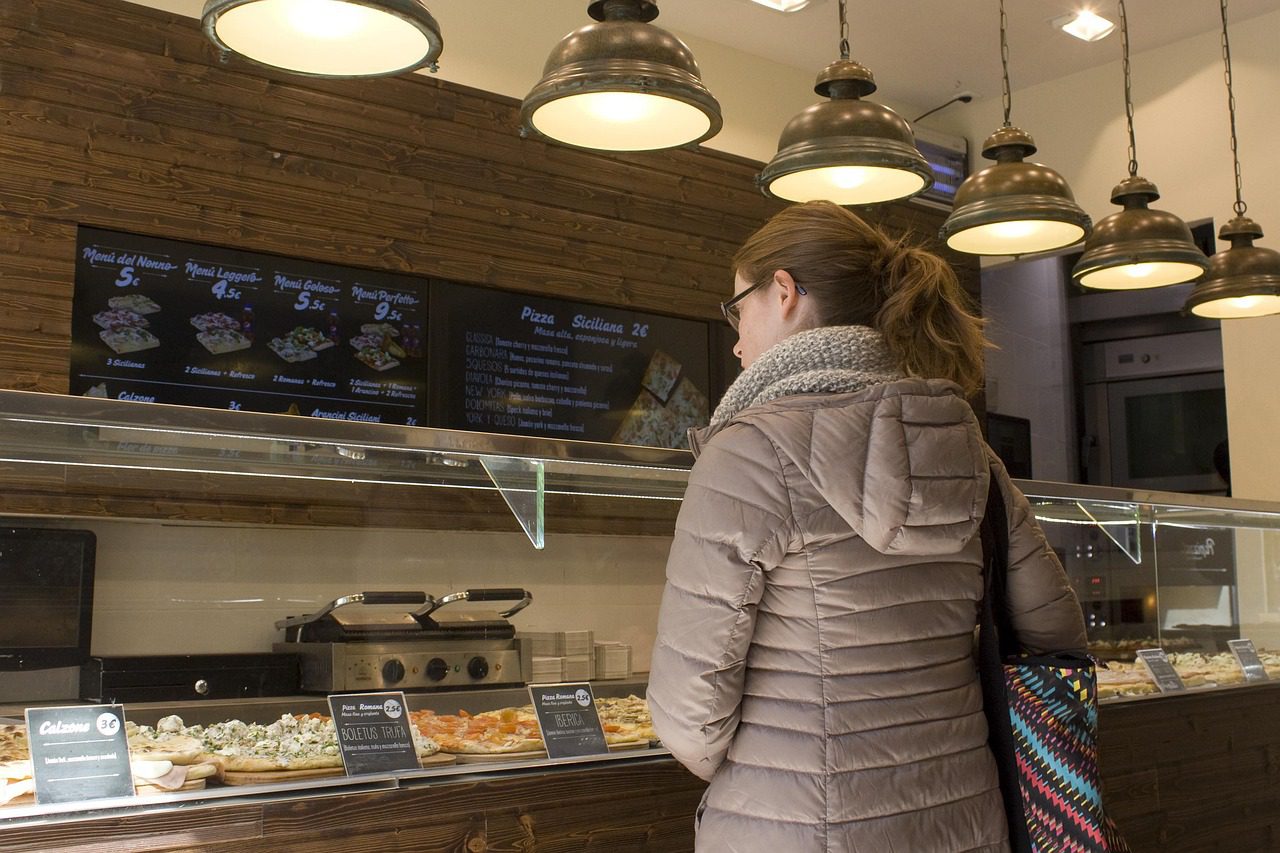Disclosure:
Some of the links on this website are affiliate links, which means that if you click on one of the links and sign up or make a purchase, we may earn a small commission at no additional cost to you. This commission helps support the maintenance and operation of this site.
We only recommend products or services that we believe will provide value to our readers. Our opinions and recommendations are based on our own research and experiences, and we strive to offer honest and unbiased content.
Please note that your support through these affiliate links is greatly appreciated, as it helps us continue to provide quality content and resources.
Thank you for your support!
Exploring Business Models and Opportunities
Franchise-based entrepreneurship is a popular and proven business model that allows individuals to own and operate a business using an established brand, business processes, and systems. Entrepreneurs who opt for franchising tap into the credibility and success of an existing brand, reducing some of the risks associated with starting a new business from scratch. There are several types of franchise models to explore, each with its own structure and potential. This article explores the main types of franchise-based entrepreneurship, some potential business opportunities, and provides insights into the pros, cons, and profit potential of each.
1. Product Franchise
Description:
In a product franchise, the franchisee is granted the right to sell products that are manufactured or supplied by the franchisor. This model often involves a dealership arrangement where the entrepreneur sells products under the brand name of the parent company. The franchisee may also receive marketing and sales support but is primarily focused on retailing a specific product line.
Potential Businesses You Can Start:
- Automotive Dealerships (e.g., Toyota, Ford)
- Soft Drink Distribution (e.g., Coca-Cola)
- Gas Station Franchises (e.g., Shell, Chevron)
- Retail Outlets for Specific Products (e.g., Apple, Samsung)
Pros:
- Easier market entry due to established product demand.
- Support from the franchisor in terms of product supply and sometimes marketing.
- Potentially lower investment compared to a business format franchise.
Cons:
- Limited control over product variety and pricing.
- Success is highly dependent on the demand for the parent company’s product.
- More restrictive than other franchise models in terms of innovation and business direction.
Profit Insights:
Profitability largely depends on the popularity and market demand of the franchised product. Entrepreneurs in this model tend to benefit from strong brand recognition but are often bound by the franchisor’s pricing and distribution strategies.

2. Business Format Franchise
Description:
The business format franchise is the most common form of franchising. In this model, the franchisee is not only given the rights to sell the franchisor’s products or services but also gains access to the entire business model, including brand identity, operational procedures, marketing strategies, and training systems. Essentially, the franchisee operates a replica of the parent company’s business under its trademark.
Potential Businesses You Can Start:
- Fast Food Chains (e.g., McDonald’s, Subway)
- Fitness Centers (e.g., Anytime Fitness, OrangeTheory)
- Retail Stores (e.g., 7-Eleven, The UPS Store)
- Coffee Shops (e.g., Starbucks, Dunkin’ Donuts)
Pros:
- Comprehensive business model and support from the franchisor.
- Access to an established customer base.
- Easier to scale with multiple locations if successful.
- Proven success formula reduces risk.
Cons:
- High initial investment and ongoing franchise fees.
- Strict operational guidelines limit autonomy.
- Less flexibility to adapt the business model to local conditions.
Profit Insights:
Business format franchises have the potential for significant profits, especially in well-established and growing markets. While initial and ongoing costs may be high, the established brand and streamlined business operations increase the chances of success. However, profitability can be constrained by high royalty fees and operational costs.
3. Conversion Franchise
Description:
In a conversion franchise, independent businesses join a larger franchise system. In this model, the franchisor allows existing businesses to convert to its brand, gaining access to the franchisor’s resources, marketing, and support while maintaining some level of operational independence. This is a common model in industries like real estate, professional services, and hospitality.
Potential Businesses You Can Start:
- Real Estate Agencies (e.g., RE/MAX, Keller Williams)
- Plumbing and Electrical Services
- HVAC Contractors
- Cleaning Services (e.g., Merry Maids)
Pros:
- Established businesses benefit from the branding and support of a larger company.
- Lower startup costs since the franchisee already owns the business infrastructure.
- Immediate credibility and access to a broader customer base.
Cons:
- Potential loss of independence for the previously independent business.
- Franchise fees and royalty payments may reduce profits.
- The need to adhere to the franchisor’s operational guidelines may be restrictive.
Profit Insights:
For conversion franchises, profitability is typically higher for existing businesses that were already successful before converting. The franchise model provides additional marketing power, leading to potential growth. However, the ongoing franchise fees can eat into profits.
Pros of Franchise-Based Entrepreneurship:
- Reduced Risk: By using an established brand and business model, franchisees face lower risks compared to starting a new business from scratch.
- Support and Training: Franchisors often provide extensive training and ongoing support to help franchisees succeed.
- Brand Recognition: Leveraging a recognized brand makes it easier to attract customers.
- Proven Business Model: A well-tested business model means fewer unknowns in daily operations.
Cons of Franchise-Based Entrepreneurship:
- High Initial Investment: Franchise fees, startup costs, and royalty payments can be substantial, especially for popular brands.
- Limited Flexibility: Franchisees must adhere to the franchisor’s rules, limiting innovation and customization.
- Ongoing Costs: Regular royalty payments and fees can reduce profit margins.
- Dependence on Franchisor: Success is often tied to the franchisor’s brand and reputation, making franchisees vulnerable to changes in the parent company’s performance.
Profit Insights for Franchise-Based Businesses
Franchise-based entrepreneurship offers varied profit potential depending on the franchise model, brand, and market demand. Popular fast-food franchises and large retail outlets can generate significant revenues, while smaller franchises may experience lower profits due to local market limitations and high overhead costs. However, with the right combination of location, management, and brand, franchisees can see strong returns on investment, particularly as the business grows and scales.
Franchise-based entrepreneurship provides aspiring business owners with the opportunity to leverage established brands and proven business models to reduce risk and enhance the chances of success. From product franchises to business format franchises and conversion franchises, there are many options available for those seeking to enter various industries. While there are upfront costs and limitations in terms of flexibility, the advantages of brand recognition and ongoing support often outweigh these drawbacks. Entrepreneurs who carefully choose the right franchise model and align it with their goals and skills have the potential to build profitable, sustainable businesses.
FAQ on Franchise-Based Entrepreneurship
1. What is franchise-based entrepreneurship?
Franchise-based entrepreneurship is a business model where an individual (the franchisee) purchases the rights to operate a business under an established brand (the franchisor). This model includes access to the franchisor’s business systems, brand, marketing, and support in exchange for fees or royalties.
2. What are the different types of franchise models?
The three main franchise models are:
- Product Franchise: Franchisees sell products manufactured or supplied by the franchisor (e.g., car dealerships).
- Business Format Franchise: Franchisees replicate the entire business model of the franchisor, including operations and branding (e.g., fast food chains).
- Conversion Franchise: Existing independent businesses join a franchise system, converting to the franchisor’s brand while maintaining some independence (e.g., real estate agencies).
3. What are the benefits of starting a franchise?
- Reduced Risk: Operating under an established brand reduces the risks of starting a new business.
- Support and Training: Franchisors provide ongoing support and training to help you succeed.
- Brand Recognition: The franchise brand already has customer awareness, making it easier to attract clients.
- Proven Business Model: The franchise comes with a well-tested business strategy and structure, helping avoid pitfalls of new businesses.
4. What are the challenges of franchise-based entrepreneurship?
- High Initial Costs: Franchise fees, startup costs, and royalties can be expensive.
- Limited Flexibility: Franchisees must adhere to the franchisor’s guidelines, limiting innovation.
- Ongoing Fees: Franchisees must pay ongoing royalties, reducing profit margins.
- Dependence on Franchisor: The franchisee’s success is closely tied to the franchisor’s performance and reputation.
5. What are the typical startup costs for a franchise?
The startup costs for a franchise can vary widely, depending on the brand and industry. Costs typically include the franchise fee, equipment, real estate, and initial marketing. For popular franchises, initial investments can range from $50,000 to over $1 million.
6. What kind of businesses can I start as a franchise?
- Product Franchise: Automotive dealerships, gas stations, retail outlets.
- Business Format Franchise: Fast food chains, fitness centers, coffee shops, retail stores.
- Conversion Franchise: Real estate agencies, service-based businesses (plumbing, electrical), cleaning services.
7. How much can I earn as a franchisee?
Franchise profitability varies based on factors like brand recognition, market demand, and operational efficiency. High-performing franchises, like those in fast food or retail, can generate significant revenues, but profitability may be limited by high royalty fees, operating costs, and market saturation.
8. How long does it take to start a franchise business?
The timeline for opening a franchise can range from a few months to over a year, depending on factors such as securing financing, finding a location, building out the premises, and completing franchisor training.
9. What is the difference between a franchisee and a franchisor?
- Franchisee: The individual or business that purchases the right to operate a franchise under the franchisor’s brand and business model.
- Franchisor: The parent company that owns the rights to the brand, products, and business systems. They grant licenses to franchisees to operate businesses under their model in exchange for fees.
10. Where can I find franchise opportunities?
You can explore franchise opportunities through various online platforms, franchise trade shows, or directly from franchisors. Websites like Franchise Direct, Franchise Gator, and the International Franchise Association offer detailed listings of available franchises across industries.
11. What kind of support do franchisors provide?
Most franchisors offer extensive support, including initial training, marketing assistance, operational guidance, and ongoing mentorship. This helps franchisees follow a successful business model and provides resources for troubleshooting issues that arise.
12. Is franchising right for everyone?
Franchising is ideal for entrepreneurs who prefer a structured business model with a support system. However, individuals who desire full creative control and the flexibility to make independent business decisions may find franchising too restrictive.
13. What factors should I consider before buying a franchise?
- Brand Reputation: Is the franchise well-regarded in the market?
- Franchise Fees and Royalties: What are the initial and ongoing costs?
- Franchisee Support: Does the franchisor provide adequate training and support?
- Market Demand: Is there a demand for the franchise in your location?
- Restrictions: What operational rules and limitations will you need to follow?
14. Can I sell my franchise business?
Yes, franchisees can sell their business, but the sale may be subject to approval by the franchisor. Franchisors typically have specific rules governing the sale and transfer of franchises to new owners.
15. What are some fast-growing franchise industries?
Some of the fastest-growing franchise industries include:
- Fast Food and QSRs (Quick Service Restaurants)
- Fitness and Wellness Centers
- Home Services and Repairs
- Senior Care
- Childcare and Education
By understanding the various franchise models and weighing the benefits and challenges, aspiring entrepreneurs can determine whether franchise-based entrepreneurship aligns with their goals and business style.
More on Entrepreneurship here.





Leave a Reply